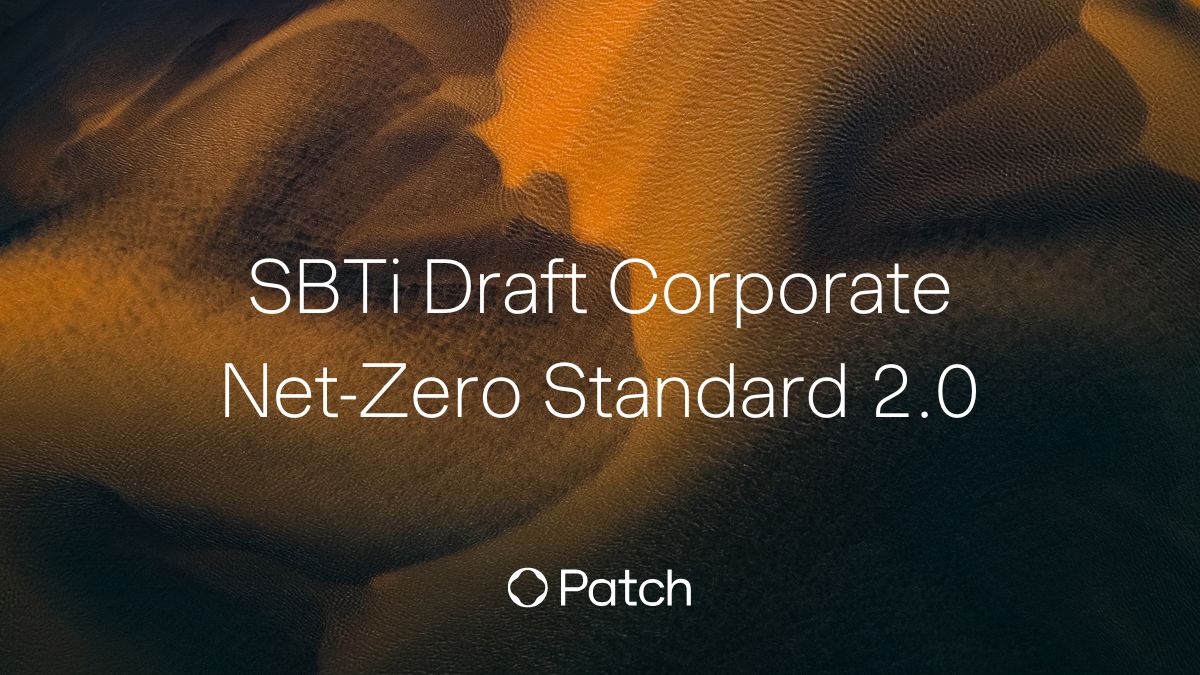In a move intended to increase confidence in the voluntary carbon markets and ensure transactions are contributing to tackling climate change, the Integrity Council for the Voluntary Carbon Market (ICVCM) recently released a draft of Core Carbon Principles (CCPs) and a corresponding Assessment Framework. This release has been highly anticipated by stakeholders within the voluntary carbon market as they aim to align on a global set of standards for high-integrity carbon credits that can be applied uniformly across carbon-crediting programs and methodologies.
The draft CCPs spell out the principles, provide guidance on how these standards should be applied, and define the parameters upon which carbon-crediting programs and methodology types will be“CCP-eligible”. The draft is now open for a 60-day public consultation period and the ICVCM is expected to launch the final CCPs by the end of 2022.
Once finalized, the Core Carbon Principles will influence what programs and methodologies are deemed “high-quality” within voluntary carbon markets and will certainly impact all stakeholders, including project developers, investors, entities purchasing credits, marketplaces and verifiers, and certification bodies.
The Patch perspective
At Patch, we believe companies need clear and transparent information on the carbon credits they are purchasing in order to make effective, confident purchase decisions and we are in full support of greater transparency within global carbon markets. We are committed to surfacing information about the CCP eligibility of credits once finalized, in addition to the extensive project-level details already offered within the Patch marketplace. In the meantime, we’re sharing a few key takeaways and outstanding questions on the draft put forward.
A move toward increased transparency and standardization
We are encouraged by the CCPs emphasis on making all credit details digital and easily accessible to “non-specialized” audiences. In addition to functional criteria, the ICVCM is seeking input on whether CCP-eligible credits should include attribution tags to clearly demonstrate:
- The type of mitigation offered from the credit - emissions reduction or removal and whether the activity is biological or technological
- If the credit is authorized to be used under Article 6 within the Paris Agreement
- If the credit offers a substantive net-positive contribution to the Sustainable Development Goals
- If the credit contributes adaptation co-benefits consistent with the host country’s priorities
We know that standardizing criteria empowers more confident and effective purchasing decisions. Patch already provides buyers with mitigation activity information, and works with carbon credit program partners to clearly articulate this information. We are keen to understand how the CCPs will address carbon credit programs that span multiple information categories. For example, how would CCPs suggest communicating information for projects that result in both emissions reductions and removals?
Questions around integration
The proposed framework positions the ICVCM as a quasi-regulatory body, providing guidance and guardrails for carbon credit integrity and establishing approvals and compliance procedures for market actors. This structure leaves questions around how the ICVCM will interact with existing voluntary carbon market registries and certification bodies in practice.
There are further questions around how the CCPs will integrate where there is a convergence between voluntary and compliance markets. This convergence is a growing trend, with some jurisdictions beginning to establish their own set of credit quality protocols and enabling these credits to be bought and sold in both compliance and voluntary markets. Will those projects now be looking to be both CCP-eligible in addition to government certified? Given the potential for duplication and increased costs of compliance for project developers, it will be important for the ICVCM to engage governments and consider how various protocols and guardrails can work together.
Timing is everything
The ICVCM is proposing that the CCP-eligibility be assessed on a go-forward basis. This move could create unintended distinctions. It is possible, for example, that a recent carbon credit program is not considered for CCP evaluation because the program was established before the CCPs were launched, but the program might otherwise meet requirements for CCP-eligibility. It is important that the process by which ICVCM considers programs for eligibility does not result in unintended conclusions on project integrity due to CCP evaluation execution timeline or constraints.
Another timing consideration: the CCP eligibility assessment is set to apply to ex-post credits, or those credits that have already delivered their climate impact. Positively, this gives project developers visibility into how to design methodologies and projects that will align with the CCP. However, the ex-post nature of the CCP approach leaves questions around how buyers can and should consider ex-ante credit purchases, and investing in forward offtake agreements, with regard to the CCPs.
Patch will be submitting our comments to the ICVCM and encourage others to do the same. We’re confident that the CCPs will ultimately offer a much needed, globally accepted threshold for quality across all credit types, from nature-based solutions to engineered technology. This threshold will increase trust in the voluntary carbon markets and give buyers the confidence to continue investing in scaling robust climate solutions. We look forward to continued engagement with our stakeholders as we work towards more transparent and accessible carbon market transactions at Patch.







